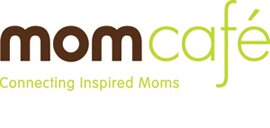
If you’re running a small business, whether selling tutus at trade shows or working as a photographer, keeping your business expenses separate from your personal expenses is not an option. There are two main reasons why. The first is that if you’re making a very small profit, your business might be deemed a hobby, and you could be denied business deductions such as supplies and home office expenses.
The Canada Revenue Agency defines a business as “an activity that you conduct for profit or with a reasonable expectation of profit.” Their profit test asks, “Was the activity conducted with an actual expectation of profit?” and “Was that expectation of profit reasonable?” By keeping your expenses and income separate from your personal account, you can show your profit or loss more easily. See also, Is Your Business Making Money (https://momcafenetwork.com/blog/2011/09/19/is-your-business-making-money/)
The second reason is that if you’re audited, hiring an accountant to try and sort out your business expenses from your personal expenses could end up costing you thousands of dollars in accounting fees.
But if you’ve checked into the cost of opening a business bank account lately, you’re probably shocked at the ridiculously high rates commanded by business bank accounts, especially considering some companies offer free banking for personal banking clients.
Even some of the most basic plans at the big banks can cost anywhere from $5 – $30 a month for just a handful of transactions. If you’ll need to write cheques under a business name, or cash cheques made out to your business name, a business banking account is the only solution. However, there are some companies out there offering much better rates that the big guys.
There are some banks out there offering no monthly fee banking, but they’re not your typical neighbourhood bank, so spend some time online searching them out. You should also check out your local credit union to learn about the plans they offer, and take the material home to compare side by side.
If your business is small, and you run it under your own name, a personal account exclusively used for business is acceptable. Just be absolutely diligent about never mixing your personal household account with the account set up for your business, and keep and track all of your expenditures and income.
Sarah Deveau of Calgary, Alberta has written two financial guides, Sink or Swim: Get Your Degree Without Drowning in Debt (2003) and Money Smart Mom: Financially Fit Parenting (2010). She has owned a children’s consignment store with annual revenue topping $400k, and currently works from home around her three children. Sarah writes for a number of publications including the Calgary Herald and Today’s Parent magazine, and is a leader in direct sales company Stella & Dot, with more than 80 Stylists on her team.



 Find Out More
Find Out More
